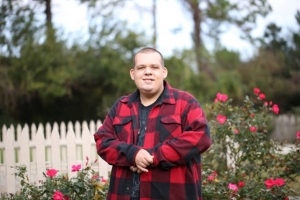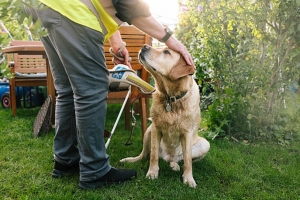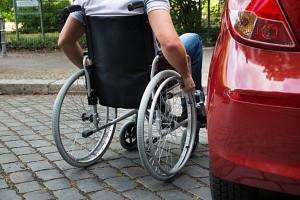New findings from the University of Cambridge suggest that trauma plays a significant role in shaping suicide risk and mental health difficulties among autistic adults, offering insights that could strengthen safeguarding and clinical screening. Published in Autism Research, the study reports that autistic people are more likely to experience psychological distress and suicide-related thoughts or behaviours than non-autistic adults, regardless of whether they have lived through traumatic events. It is also the first research to demonstrate that particular types of trauma are connected to different forms of distress and harmful behaviours.
Researchers from the Autism Research Centre analysed anonymous survey responses from more than 760 adults, most of whom were based in the UK. The questionnaire, designed in collaboration with autistic adults, covered 60 challenging life experiences across areas such as childhood and adult victimisation, employment, mental health, and social support. After adjusting for factors including age, sex and co-occurring conditions, the team found that autistic adults reported consistently higher rates of self-harm, suicide attempts and mental health conditions affecting daily life.
Childhood victimisation and lack of social support emerged as particularly influential, each associated with higher levels of self-harm behaviour, suicide planning and long-term mental health problems. However, the study also found that trauma alone could not fully explain the heightened suicide risk seen in autistic people, pointing to autism-specific factors such as sensory overwhelm or the pressure to mask autistic traits.
Lead researcher Dr Elizabeth Weir said the results highlight the need for trauma-informed mental health care tailored to autistic individuals. The project was funded by Autistica and the Autism Research Trust, now operating under Autism Action.
A new ADASS survey has revealed a steep rise in the number of young adults whose social care costs exceed £7,000 per week, with figures up by nearly a third in just one year. These intensive packages, provided for 18–24 year olds with the most complex conditions—ranging from profound disabilities and severe neurodivergence to significant mental health risks—rose from an estimated 547 people in 2024 to 712 in 2025. Directors say the escalation reflects growing levels of need, increased responsibility shifting from health services to councils without funding, and continuing strain on local authority budgets and staffing.
The survey also reports a projected £623 million overspend in adult social care for 2025/26, the largest since the pandemic. Many directors say this financial pressure is exacerbated by healthcare duties being handed to social care teams without clear agreements on funding, staff training or competency standards. ADASS President Jess McGregor said the figures point to “real people with unmet needs”, arguing that chronic underfunding is forcing councils to choose between financial stability and essential support for young adults with complex needs.
ADASS is urging the Government to commit to better preparation for adulthood, develop national standards with young people and families, and provide stabilisation funding for fragile care markets. Support for retaining social care workers is also being requested as international recruitment routes are reduced.
Sector leaders warn that without meaningful reform, councils will remain stuck in crisis-management mode. Kathryn Marsden OBE of SCIE said this undermines early intervention, weakens provider stability and threatens the continuity of care for vulnerable young people moving into adulthood.
The Government has opened a public consultation on draft guidance designed to help health, social care, education and housing services better understand and meet the needs of people with Down’s syndrome. The aim is to give greater clarity on what support individuals should be able to expect, while also increasing awareness of the condition across key services. People with Down’s syndrome, their families and carers are encouraged to contribute, as are individuals with other chromosomal or genetic conditions whose needs often overlap. Professionals working in relevant services are also invited to share their views.
The Down Syndrome Act received Royal Assent in April 2022, creating a duty to publish statutory guidance outlining how service providers should respond to the specific needs of people with Down’s syndrome. Health minister Dr Zubir Ahmed said the new draft brings essential information together in one place, offering clear advice on legal responsibilities and practical examples of how organisations can apply them. He emphasised that many of the estimated 47,000 people in the UK with Down’s syndrome continue to face unnecessary barriers in accessing timely and appropriate support.
Charities have welcomed the consultation. Carol Boys of the Down’s Syndrome Association said the Act provides an important opportunity to strengthen how existing laws are applied, ensuring people receive the support they are entitled to. She noted that families still frequently encounter delays, inconsistent decision-making and gaps in specialist expertise. The inclusion of people with related chromosomal and genetic conditions in the guidance was also praised as an important step towards more equitable support.
The National Down Syndrome Policy Group described the consultation as a positive move towards turning policy ambitions into practical improvements. They stressed, however, that meaningful change depends on how effectively the guidance is put into action. Ensuring joined-up services, prompt assessments and staff who understand individuals’ needs will be key to seeing real benefits. The consultation will run for 12 weeks, closing at 11:59pm on 28 January 2026.
Disabled women are earning nearly a third less than non-disabled men, according to new figures from the Trade Union Congress (TUC), which highlight a persistent and damaging pay divide. Overall, disabled workers face a 15.5% earnings gap compared with non-disabled colleagues. The union says this difference – worth about £2.24 an hour – leaves a disabled person working a typical 35-hour week more than £4,000 worse off each year. This financial inequality sits alongside higher unemployment rates among disabled people and a greater likelihood of being pushed into insecure roles.
The report notes that joblessness among disabled workers has risen to its highest level since before the pandemic, now standing at more than twice the rate for non-disabled people. Disabled employees are also more frequently tied to zero-hours contracts, with 4.3% working under such arrangements compared with 3.3% of non-disabled workers. The TUC argues that this insecurity makes it far harder for people to challenge unfair treatment, as raising concerns can mean losing future shifts.
Ministers have pledged to outlaw zero-hours contracts through the upcoming Employment Rights Bill – a move the TUC has welcomed as a step towards improving working conditions for disabled people. The union is pressing the government to quickly follow through on commitments to introduce mandatory disability pay gap reporting, mirroring existing requirements for gender pay transparency.
The TUC also says reforms to the Access to Work scheme and wider workplace support must be delivered alongside these measures. Citing last week’s Mayfield review, the union stressed the need for decisive action to increase disabled employment. General Secretary Paul Nowak said disabled workers should not be left behind, adding that fair pay and secure work are essential for ensuring disabled people can build a life free from poverty.
Disability rights groups are calling for stronger legal protections and a national register for assistance dogs amid growing reports of people with learning disabilities and other conditions being refused entry to shops, restaurants and public transport. Led by Assistance Dogs UK (ADUK), campaigners argue that existing laws are unclear and fail to prevent widespread discrimination against those who rely on trained animals for daily independence and wellbeing.
Former police officer Garry Botterill, founder of Service Dogs UK, said clearer legislation and an official register would help both dog handlers and businesses. “At the moment, anyone can buy a jacket online and claim their pet is an assistance dog. This makes it harder for service providers to distinguish genuine, well-trained dogs from unregulated ones,” he said. The lack of consistent standards, he added, often leads to confusion and unnecessary access refusals.
British Army veteran and paramedic Jordan Chapman, who relies on his PTSD assistance dog Teddy, said the issue affects people across the disability spectrum, including those with learning disabilities. He described being refused entry to restaurants and shops despite Teddy’s training, calling such experiences “humiliating and common”.
Campaigners are pressing MPs to define assistance dogs more clearly in law, ensuring recognised training standards and protecting disabled people from discrimination. ADUK said it supports legal reform to strengthen equality and accessibility for all.
A pioneering mental health programme designed to help autistic young people manage their wellbeing before reaching crisis point has been awarded a further three years of funding. The Autistic and OK initiative, launched in 2024 by Ambitious about Autism, Zurich UK and the Z Zurich Foundation, provides free educational resources to every secondary school in the UK. So far, over 1,000 schools have downloaded the toolkit, potentially supporting more than 20,000 autistic pupils.
The scheme includes materials for older autistic students to lead wellbeing sessions for younger peers, alongside assembly guides and training modules for teachers aimed at promoting understanding and inclusion across school communities. Over the next phase, new content will be added, with a focus on building greater awareness of autism and expanding engagement in key regions across the country.
Co-created with autistic youth advisors from Ambitious about Autism’s Youth Network, the resources address mental health challenges such as anxiety, depression and obsessive-compulsive disorder, as well as issues like bullying. The advisors will continue to shape the programme’s future development.
Rebecca, 21, one of the youth advisors involved, said the initiative had “transformed school environments” by empowering autistic pupils and developing valuable skills. She added that the renewed funding would help continue efforts to make schools more inclusive and supportive for every autistic young person.
Disabled people and carers relocating to Scotland will now be required to submit new applications to continue receiving financial assistance, following changes introduced by the Scottish Government. The reforms replace existing UK-wide benefits such as Personal Independence Payment (PIP), Disability Living Allowance (DLA) for children and Carer’s Allowance with new Scottish equivalents.
Under the updated system, individuals must apply for Adult Disability Payment, Child Disability Payment or Carer Support Payment shortly after moving north of the border to avoid interruptions in financial support. The Department for Work and Pensions (DWP) and the Department for Communities in Northern Ireland will maintain existing payments for up to 13 weeks after a move, giving applicants time to complete the transition. Attendance Allowance will also be replaced next year by the Pension Age Disability Payment.
Karyn Dunning, deputy director at Social Security Scotland, said the new framework aims to provide a more compassionate and accessible benefits system. She encouraged those affected to apply promptly, noting that the Scottish approach avoids private sector assessors and prioritises dignity, fairness and respect in decision-making.
Applicants who meet the required timescales may have their new payments backdated to cover the period immediately following the end of their DWP entitlement, ensuring no loss of income during the move.
A new parliamentary report has exposed what MPs describe as a growing crisis in the provision of community disability equipment, with more than half of users unable to access the medical aids they need for safe, independent living. The All-Party Parliamentary Group (APPG) for Access to Disability Equipment’s report, Barriers to Accessing Lifesaving Disability Equipment, found that 55% of people lack suitable equipment and 63% of carers and parents believe the situation is deteriorating.
The inquiry, chaired by Daniel Francis MP, revealed that shortages and delays in essential aids—such as hoists, grab rails, and harnesses—are contributing to long hospital stays and putting extra strain on families and care services. Nearly three-quarters of equipment providers reported discharge delays due to shortages, while almost half said access to equipment varies widely and unfairly across the country.
Francis said the system is “failing disabled people at every level”, pointing to missed school days, lost employment, and injuries among carers. He called for a new National Strategy for Community Equipment, led by a dedicated minister to ensure accountability and equitable access.
The report highlights deep-rooted fragmentation, regional inequalities, and chronic underfunding as central causes of the crisis. MPs warn that without urgent national leadership, thousands will continue to be denied the basic equipment necessary for dignity and independence.










